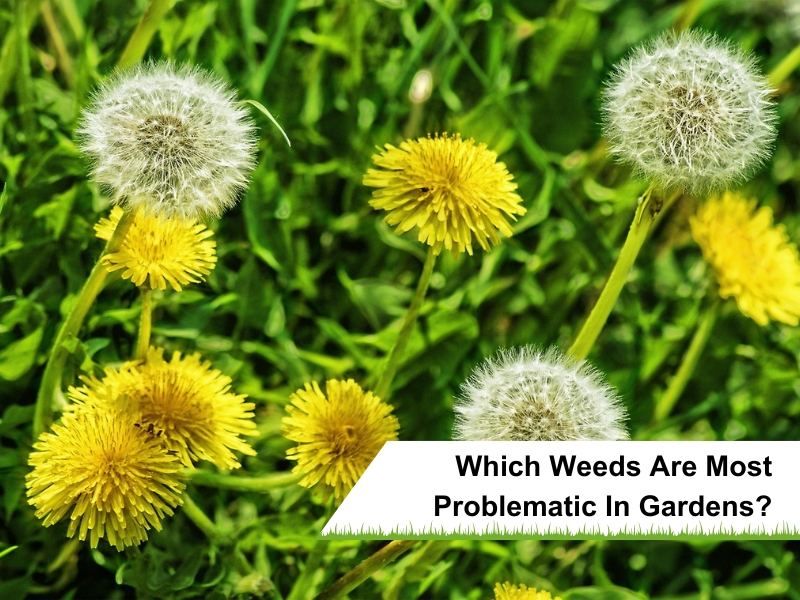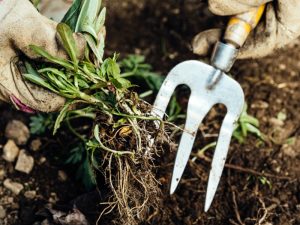Gardening in Sydney can be a delightful experience, but battling weeds is a challenge every gardener faces. Some weeds are more troublesome than others, causing significant issues in gardens. Understanding which weeds are most problematic and how to manage them can help you maintain a thriving garden.
What makes certain weeds more problematic than others?
Not all weeds are created equal. Some weeds are particularly problematic due to their aggressive growth and adaptability. Here’s what makes certain weeds more challenging:
- Rapid growth: Some weeds grow and spread quickly, taking over garden spaces before you know it.
- Deep root systems: Weeds like dandelions have deep roots, making them hard to remove completely.
- High seed production: Weeds like thistles produce a large number of seeds, increasing their chances of spreading.
- Adaptability: Some weeds adapt to various soil and weather conditions, making them resilient.
- Resistance to control methods: Herbicide resistance in weeds is becoming an increasing challenge, making it essential to explore alternative weed control methods.
How can you identify common problematic weeds in Sydney gardens?
Identifying weeds is the first step in controlling them. Here are some common problematic weeds in Sydney gardens:
- Bindii (Soliva sessilis): Known for its sharp burrs that can be painful, especially for barefoot walkers.
- Nutgrass (Cyperus rotundus): A persistent weed with underground tubers, making it hard to eradicate.
- Dandelion (Taraxacum officinale): Recognisable by its yellow flowers and deep taproots.
- Couch Grass (Cynodon dactylon): A fast-spreading grass that can invade garden beds.
- Oxalis (Oxalis spp.): Known for its clover-like leaves and small yellow flowers, it spreads quickly.
- Paterson’s Curse (Echium plantagineum): This weed is invasive and harmful to livestock.
- Lantana (Lantana camara): A highly invasive shrub that can quickly spread and become problematic.
Why do weeds thrive in Sydney’s climate?
Sydney’s climate provides the perfect conditions for weeds to flourish. Here’s why:
- Mild winters: The relatively mild winters allow some weeds to survive year-round.
- Warm summers: The warmth promotes the rapid growth of many weed species.
- Regular rainfall: Adequate rainfall provides the moisture weeds need to thrive.
- Diverse soil types: Sydney’s varied soil types support a wide range of weed species.
- Urban gardening practices: Disturbed soil and frequent watering in gardens create ideal conditions for weeds.
What are the most effective methods to control problematic weeds in your garden?
When it comes to controlling weeds, one of the most important strategies is finding effective ways to kill weeds naturally without damaging your lawn.
- Hand pulling: Best for small infestations; ensure the entire root system is removed.
- Mulching: Applying mulch can suppress weed growth by blocking sunlight.
- Herbicides: Use selective herbicides for specific weeds, following label instructions carefully.
- Cultivation: Regularly tilling the soil can help manage weed seeds and seedlings.
- Weed mats: Placing weed mats or landscape fabric prevents weed seeds from germinating.
- Boiling water: Pouring boiling water on weeds can kill them without chemicals.
- Vinegar solutions: A natural herbicide, vinegar can be effective for spot-treating weeds.
Can landscaping techniques help prevent weed growth?
Landscaping can play a significant role in weed prevention. Here’s how:
- Proper plant spacing: Densely planted garden beds leave less room for weeds to grow.
- Ground covers: Using ground covers can prevent weeds from establishing by shading the soil.
- Hardscaping: Incorporating pathways, patios, and rock gardens reduces areas where weeds can grow.
- Raised beds: Elevating garden beds can limit weed invasion from surrounding areas.
- Regular maintenance: Keeping the garden tidy and free from debris reduces hiding spots for weed seeds. Additionally, understanding the importance of healthy soil for weed prevention helps create a garden that naturally resists weeds.
What should you consider when choosing solutions for problematic weeds?
Choosing the right solution depends on several factors. Consider the following:
- Type of weed: Different weeds require different control methods.
- Garden size: Larger gardens may need more extensive weed management techniques.
- Environmental impact: Opt for eco-friendly solutions to minimise environmental harm.
- Cost: Weigh the costs of various methods, including labour and materials.
- Time commitment: Some methods require more time and effort than others.
- Effectiveness: Consider the long-term effectiveness of the method chosen.
How can you create a low-maintenance, weed-resistant garden?
Creating a weed-resistant garden involves strategic planning. Here are some tips:
- Choose native plants: Native plants are better adapted to the local environment and compete well with weeds.
- Use perennials: Perennials provide ground cover, reducing space for weeds.
- Apply mulch: Mulch not only prevents weeds but also retains soil moisture. Additionally, maintaining the correct mulch depth for weed suppression helps block sunlight.
- Install drip irrigation: Targeted watering keeps the soil moist without encouraging weed growth.
- Regular weeding: Frequent weeding prevents weeds from establishing and spreading.
- Encourage healthy soil: Healthy soil supports strong plants that can outcompete weeds.
Are there professional services that specialise in managing problematic weeds?
Yes, professional gardening services can be a great help. Many homeowners opt to hire expert weed control services to manage persistent weeds and maintain a healthy garden efficiently. These services offer:
- Expert knowledge: Professionals can accurately identify and manage different weed types.
- Specialised equipment: Access to tools and equipment that are effective in weed control.
- Time-saving: Hiring a service saves time and effort for the homeowner.
- Customised solutions: Tailored weed management plans suited to your garden’s needs.
- Regular maintenance: Ongoing maintenance ensures weeds are kept under control.
- Eco-friendly options: Many services offer environmentally friendly weed control methods.
How can you protect your garden from future weed infestations?
Preventing future weed infestations is essential for a healthy garden. Here’s how:
- Regular monitoring: Keep an eye on your garden for early signs of weeds.
- Prompt action: Address weed problems as soon as they appear to prevent spreading.
- Healthy Soil practices: Use compost and organic matter to maintain healthy soil.
- Seasonal clean-ups: Clean up fallen leaves and debris that can harbour weed seeds.
- Proper watering techniques: Water only the plants, not the surrounding soil, to discourage weed growth.
- Rotate crops: In vegetable gardens, rotating crops can help disrupt weed life cycles.
Say goodbye to weeds with A1 Gardening & Landscaping Sydney Sydney
Dealing with problematic weeds can be overwhelming, but you don’t have to do it alone. A1 Gardening & Landscaping Sydney Sydney offers professional weeding services tailored to your garden’s unique needs. Our team of experts provides effective weed management solutions, ensuring your garden stays healthy and weed-free. Schedule a consultation with A1 Gardening & Landscaping Sydney Sydney and take the first step towards a beautiful, weed-free garden.





